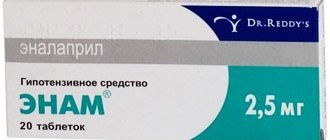The section of medicine called “therapy” is aimed at studying, diagnosing, developing a system of conservative treatment, prevention and rehabilitation, studying the pathogenesis and etiology of various internal diseases and their clinical manifestations.
The field of therapy includes the study of diseases of the cardiovascular system, respiratory system, digestive tract, connective tissue, kidneys, liver, endocrine system, as well as infectious diseases. Accordingly, a therapist is a general practitioner whose competence includes studying the cause-and-effect relationship of the mechanisms of disease of internal organs and systems. He deals with their diagnosis, treatment, prevention and, if necessary, refers the person to a more specialized specialist, for example, a pulmonologist or cardiologist. The profession of a therapist is in great demand in the field of healthcare, since it is he who carries out the initial appointment and physical examination of the patient, and, based on the existing symptoms, determines which specialist should deal with this disease, including a surgical focus.
General practitioner - who is he?
A general practitioner is a specialist with a higher medical education whose professional activities include the prevention, diagnosis and treatment of a wide range of diseases. As a rule, the therapist is the first medical specialist to whom a sick person turns. This is not accidental, since it is precisely such a professional who carries out the primary diagnostic and therapeutic measures.
The therapist has extensive knowledge in all branches of medical science without exception. If necessary, he can refer the patient for examination and treatment to a specialist.
Organs and parts of the body treated by therapists
A general practitioner must understand a wide range of diseases and their manifestations. Dwelling on the diseases that fall within the competence of a general practitioner, we can highlight the following disruptions:
- organs of the respiratory system;
- heart and blood vessels;
- kidney and urinary system;
- endocrine system;
- circulatory system;
- joints and muscles;
- connective tissues.
What competencies does a therapist have?
The professional responsibilities of this specialist include a large number of different procedures and activities. Among them are:
- patient interview (includes collection of complaints, life history, and other necessary information);
- visual inspection;
- conducting a manual examination using palpation, percussion, auscultation, etc.;
- filling out a personal medical card;
- resolving the issue of referral for various diagnostic procedures (laboratory and instrumental);
- prescribing timely and appropriate treatment to the situation.
Common features
As noted earlier, both specializations have the same foundation - therapeutic focus . Both a therapist and a general practitioner can, in most cases, provide all the necessary assistance in one visit, since the scope of their knowledge is quite wide, especially when it comes to colds and other common diseases. Both specialists can adequately and quickly determine whether the patient needs to visit a specialist and issue a referral for specific tests or examination.
Basically, therapists and GPs deal with issues of the adult part of the population and do not have sufficient qualifications to perform the duties of a pediatrician. Another common feature is that they can work both in accordance with the local principle and be on the staff of various non-medical institutions , such as hotels, universities, sanatoriums, holiday homes and so on.
Despite these similarities, there are quite a few important differences between the two profiles.
In what cases will a therapist help?
A general practitioner helps with many symptoms and pathological conditions. Among the most common symptoms that patients present with are the following:
- increased body temperature;
- fluctuations in blood pressure;
- problems with the gastrointestinal tract;
- numbness of various parts of the body;
- signs of respiratory diseases;
- dyspnea;
- pain in various parts of the body;
- nausea, vomiting;
- dizziness;
- weakness, malaise;
- chronic fatigue;
- swelling in the legs or elsewhere;
- a sharp increase or decrease in body weight;
- much more.
What does a general practitioner do?
A GP can be said to be an “enhanced” therapist. To obtain this specialization, it is necessary to take advanced training courses , after which the range of medical issues addressed significantly expands. For example, there is an opportunity to additionally engage in:
- Surgical assistance.
- ENT diseases.
- Endocrine system problems.
In addition, he may have the competencies of an ophthalmologist and gynecologist , as a result of which he is highly valued in villages and suburban areas.
A subtype of GP is a family doctor , who is able to provide assistance to each family member, regardless of age. However, it does not replace the duties of a pediatrician.
Why a therapist is useful
Very often there is a situation when a person experiences general malaise or feels any specific symptoms, there is no understanding of which specialized medical specialist is best to contact. It is in this case that the help of such a specialist as a therapist is needed.
This generalist doctor will not only solve your existing problems, but will also conduct a full examination of the whole body. The result of such an examination may be the identification of any sluggish changes in the initial stages. And this is very important, since any diseases and pathological conditions are better treated in the first stages of their course.
How are they different?
The comparison will be made specifically between a general practitioner and a therapist, since the first specialization includes more nuances and, in general, is an expanded type of the second .
First of all, to become a general practitioner, you must not only graduate from a university in the field of “Therapy” or “General Medicine,” but also defend research papers and dissertations , take advanced training courses , and also attend various scientific events .
Of course, every doctor should treat his patients with courtesy, but this quality is especially important for GPs, since, unlike therapists, they work not only with adults, but also with children, and they need more careful and careful care . The therapist does not have to be both a psychologist and a teacher , and for a general practitioner, these aspects are as integral a part of the competence as basic medical knowledge.
Monitoring pregnant women is another distinctive feature of the work of a GP; he monitors all processes associated with pregnancy: breastfeeding, proper nutrition of a woman and care of newborns.
Another important difference between a general practitioner and a local therapist is that even if a decision is made to refer a patient to another specialist, this does not mean that monitoring of the patient is stopped and treatment is transferred to other hands. The GP still monitors the person comprehensively and continues to make important decisions regarding his health, and the results of the work of another doctor are perceived only as an aid.
Finally, the connection between the patient and the attending physician is more noticeable when contacting a GP, since his responsibilities officially include providing not only medical and preventive care, but also social care . Consultations of various kinds, moral support and monitoring of families - all this is more typical of general practitioners than of local therapists.
Where does a therapist train?
Like other professional doctors, this specialist goes through a full cycle of medical education. This training program includes many years of studies at the medical faculty of an institution of higher professional education. Then the future specialist will undergo in-depth training, which allows him to immerse himself in the diagnosis, clinic and treatment of various diseases of the internal organs of a person.
All specialists who work in our clinic have completed a full course of training, which is confirmed by relevant diplomas, certificates and accreditation certificates. In addition, each specialist regularly improves his or her own level of qualifications by attending various courses and seminars. This approach allows you not to lose a high level of professional skill. And this is very important in the age of development of medical technologies, during the introduction into practice of new innovative methods for diagnosing and treating diseases of internal organs.
What is the specificity of their knowledge and what is the treatment approach of these doctors?
All three professions have common features:
1. Doctors treat patients with their hands. In this case, the main effect occurs not through massage, but through targeted pressure on certain areas.
2. Doctors of these profiles were trained at higher medical institutions. This factor is mandatory, since the doctor must know the structure of the human body well so that physical impact does not cause negative consequences.
3. Before treatment, the doctor in each of the above areas conducts diagnostics. To do this, the doctor may need the results of blood tests, urine tests, stool tests, x-rays, ultrasound, or MRI.
Where to go
Our clinic’s professionals diagnose and treat a wide variety of diseases encountered by our patients. We have a lot of experience in therapy even in the rarest cases, when specialists from other medical institutions and diagnostic centers remain powerless.
Our clinic is equipped with professional medical equipment, which helps general practitioners conduct thorough diagnostics and prescribe correct treatment that is appropriate to the situation. It is worth noting that our diagnostic service has the ability to perform several thousand types of laboratory tests. Therefore, a therapeutic doctor has in his arsenal all the necessary tools for an accurate diagnosis.
A general practitioner helps not only with certain diseases. You can consult during pregnancy, as part of rehabilitation after an acute illness, and in many other situations. Do not delay treatment if you have any health problems. Any therapeutic measures are more effective in the early stages.
It often happens that a person, feeling unwell, cannot decide which specialist he should contact. At the same time, there is a doctor whose task is the initial examination and consultation of patients. The therapist collects a medical history, analyzes the symptoms and decides which specialized doctor to refer the patient to. Sometimes the issue of making a diagnosis is decided at the therapist level. The sooner a patient seeks qualified help, the faster he will get rid of health problems.
Where to make an appointment with a general practitioner in Odintsovo
Therapists at the Orinmed clinic diagnose and treat various diseases. The best professionals are ready to provide competent support and give useful recommendations at a time convenient for the patient. The therapeutic rooms of the Orinmed clinic are equipped with the latest diagnostic equipment. Clients of the clinic have the opportunity to undergo various studies and pass more than 2000 types of tests. In the clinic’s laboratory, you can undergo examinations to prepare for hospitalization, scheduled medical examinations, pregnancy monitoring, and tracking the progression of chronic diseases.
Our clinic is located at Odintsovo, st. Severnaya d.5 k.4 (residential complex "Odinburg"), phone: +7 (495) 740-95-95
What general practitioner services are offered at Orinmed:
Patients are offered a wide range of therapist services.
- Initial (repeated) appointment, which includes the formation of a treatment plan.
- Making a diagnosis with the help of a consultation of clinic specialists.
- Receiving recommendations from the Chief Physician of the Clinic.
- Registration of various medical certificates: for visiting the swimming pool, sports sections, fitness clubs, for employment, referrals for fluorography, various tests.
- Registration of a medical card for a sanatorium or a tourist trip.
All services are provided in comfortable conditions, without queues, at a time convenient for patients. The results are sent by email or transmitted personally.
| THERAPY | Cost, rub |
| Primary outpatient appointment with a therapist (with drawing up a treatment plan) | 1 500 |
| Repeated outpatient appointment with a therapist (with drawing up a treatment plan) | 1 250 |
| Help for the pool | 850 |
| Certificate for the sports section, gym (ECG required) | 950 |
| Medical exemption from vaccination | 1 000 |
| Doctor's report to be presented at the place of request | 1 000 |
| Certificate for employment (issued with a general blood test, general urine test, fluorography, screening (RW, HIV, hepatitis) | 1 500 |
| Registration of a sanatorium-resort card (according to the submitted medical documents) | 1 500 |
GPs in Moscow clinics
To retrain, a therapist must undergo additional training and obtain a certificate. In Moscow, retraining is carried out on the basis of Moscow State Medical University named after I.M. Sechenov. Gradually, all the capital’s therapists will retrain, and very soon - in a year or two, primarily GPs will work at the initial appointment.
Already, more than 3,000 GPs work in Moscow clinics, and they see hundreds of thousands of patients every week.
More than 2,000 medical and 550 manipulation rooms are equipped with additional equipment.
In the capital, GPs receive a monthly incentive supplement to their salary in the amount of 20 thousand rubles.
The innovation is aimed at improving the provision of primary health care.
Reasons for contacting
You can make an appointment with such a doctor in cases where your health requires it and there are reasons for concern. Patients who experience certain symptoms most often turn to a specialist doctor. Such an appeal may be premature, since first, the family doctor will be able to correctly substantiate the causes of ailments, not miss important details of the disease, classify the disease and develop a treatment regimen. The same physiological signs are characteristic of various diseases.
You should call a doctor if the following symptoms appear:
- Temperature increase.
- Weakness and excessive fatigue.
- Painful sensations of different types.
- Digestive problems.
The GP will conduct an examination and initial examinations, make a diagnosis and prescribe treatment, and will also monitor the condition throughout the illness and recovery period.
Responsibilities
GPs provide appointments in different formats. Consultation is provided at the patient’s home and at the specialist’s main place of work. There is assistance during childbirth, care for small children, the elderly, and there are general dentists. In rural settlements, GPs have a wide range of powers. Carrying out minor operating procedures or attending surgical procedures are all within his scope of practice. The duties of a family doctor include:
- Off-site receptions.
- Medical examinations.
- Diagnosis of diseases.
- Determination of treatment methods.
- Initiation of further examination.
- Close interaction with colleagues – subject matter experts.
- Observation of the whole family to determine an accurate diagnosis.
Examination by a therapist: how it goes and what to do next
At the initial appointment, the therapist interviews and examines the patient. The specialist is interested in your well-being, clarifies complaints, the presence of chronic diseases, is interested in lifestyle and the presence of hereditary diseases. Next, the doctor conducts a physical examination: listens with a stethoscope, palpates and taps. These simple methods can provide important data about the patient’s condition: on their basis, a preliminary diagnosis is established.
To confirm or refute it, the therapist can refer for ultrasound, MRI, laboratory tests, x-rays, prescribe endoscopic examinations and functional diagnostics. All medical therapists have a valid license and use modern, non-invasive diagnostic techniques of high efficiency at affordable prices. Their necessity, tasks and goals will be explained at the appointment - after that you can sign up for the procedures directly in our clinic or have them done in any third-party laboratory. In the first case, as soon as the results are ready, a second appointment is held, in the second - after collecting all the results, you make an appointment yourself by phone. At a follow-up consultation, the therapist announces the diagnosis and prescribes treatment.
Description
GPs work in district medical institutions, hospitals, medical centers of enterprises and organizations, and in personal offices. Its direct purpose is to constantly monitor and maintain the health of citizens. Main responsibilities of a specialist:
- Reception of patients at home and in outpatient settings.
- Systematic examination of the family of the sick person.
- Preparation of relevant medical documents and issuing sick leave certificates.
- Development and application of preventive and rehabilitation measures.
- Management of pregnancy in women.
The main task for general practitioners is to care for patients and timely identify signs of serious diseases. If dangerous symptoms are suspected, the GP initiates a referral to the hospital or transfers the patient to colleagues and specialized specialists.
Doctor's advice
In addition to treating existing diseases, a family specialist takes care of preventing the occurrence of pathologies. Standard doctor’s advice includes basic recommendations for leading the healthiest and most fulfilling lifestyle:
- Get enough sleep.
It is advisable to go to rest no later than 22-23 hours. Total sleep time is 8-10 hours. - Eat a balanced diet.
The diet should contain vitamins, proteins, minerals, amino acids and carbohydrates. It is important to satisfy the body's daily energy needs. - Make time for physical activity.
The minimum recommended by your family doctor is five to ten minutes of exercise in the morning. - Avoid emotional overload.
Stress not only negatively affects the psychological state, but also impairs the functioning of the immune system. - Treat chronic diseases in a timely manner.
In the presence of indolent pathologies, it is important to prevent their relapses by strictly following the preventive courses of therapy prescribed by the family doctor. - Attend regular checkups.
It is advisable to undergo a full medical examination once a year, and consult a dentist or gynecologist every 6 months.
Record
The best option is when you have such a specialist. You agree on the time and place of the visit. If you haven’t decided on a candidate yet, it’s time to start looking for a future family doctor. This will be the person who will come to your aid in difficult situations.
Medical referral services will help you find someone suitable for your area of residence and provide their contact information. Such information is posted on the websites of district clinics and hospitals. Mutual understanding and trusting relationships are the key to recovery. Recommendations are an argument for choosing the right specialist for you.
How to find out the name of your primary care physician
The most convenient way to do this is online. Clinics post information on their official pages indicating the name and surname of the doctor. In Moscow, all patients are entered into EMIAS, a unified medical information and analytical system. It simplifies the process of registering with specialists.
Free consultation and treatment can be obtained under the compulsory health insurance policy. The compulsory medical insurance program for free treatment only includes treatment directed by a doctor if there are appropriate indications. Some services are provided for a fee, for example, teeth whitening and prosthetics, cosmetic services, stay in superior rooms, and spa treatment.








